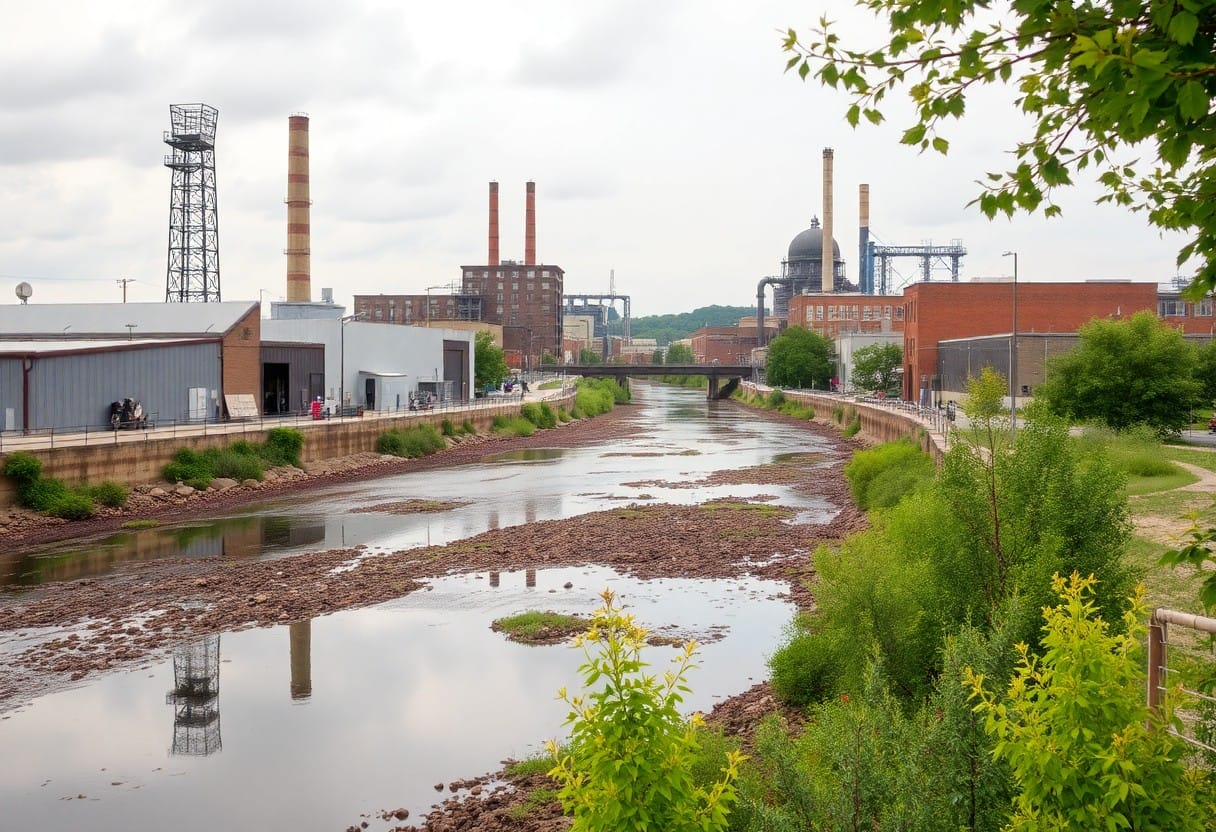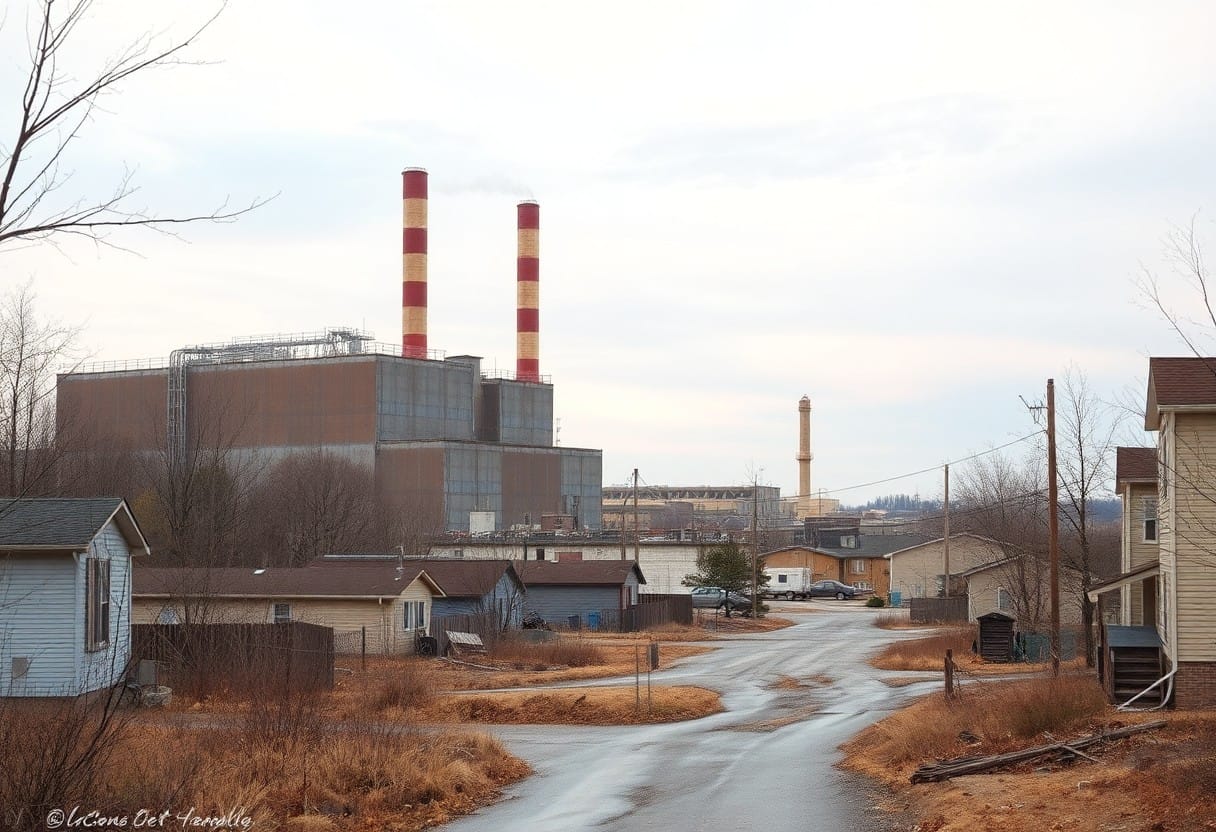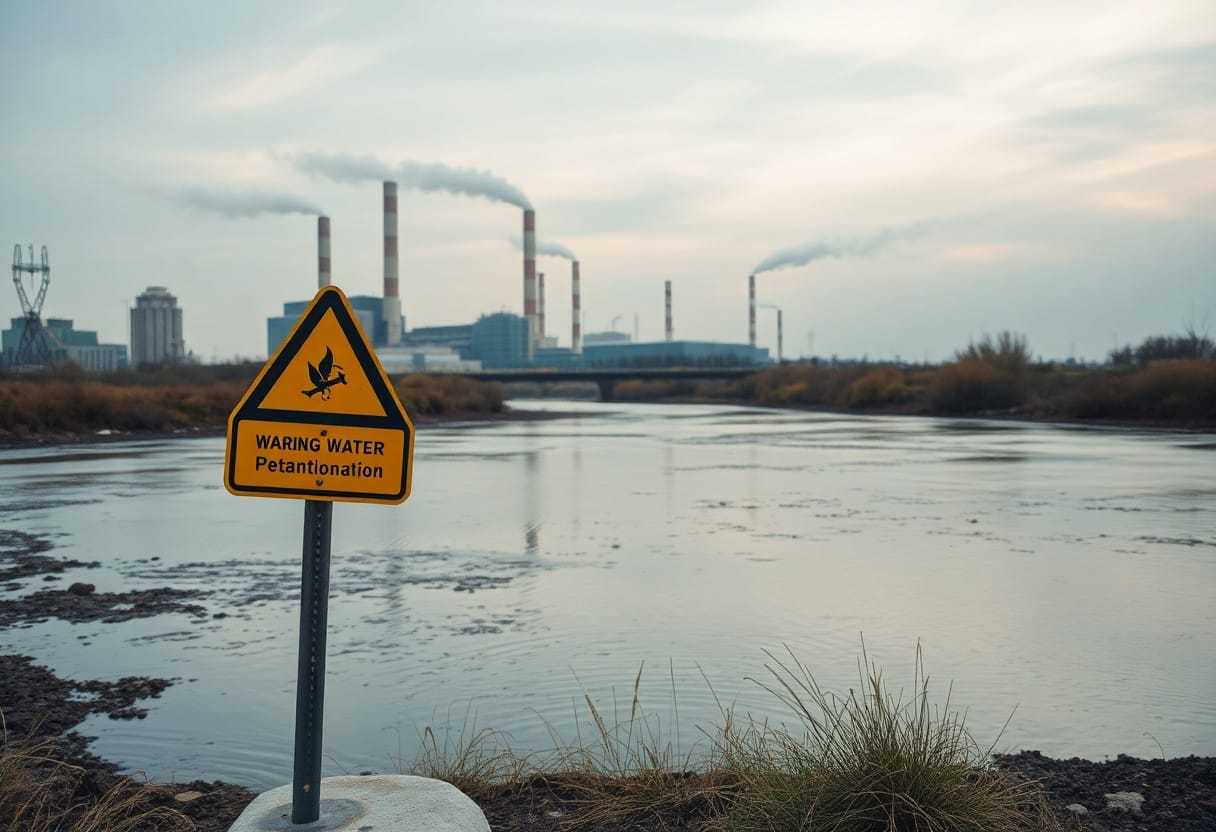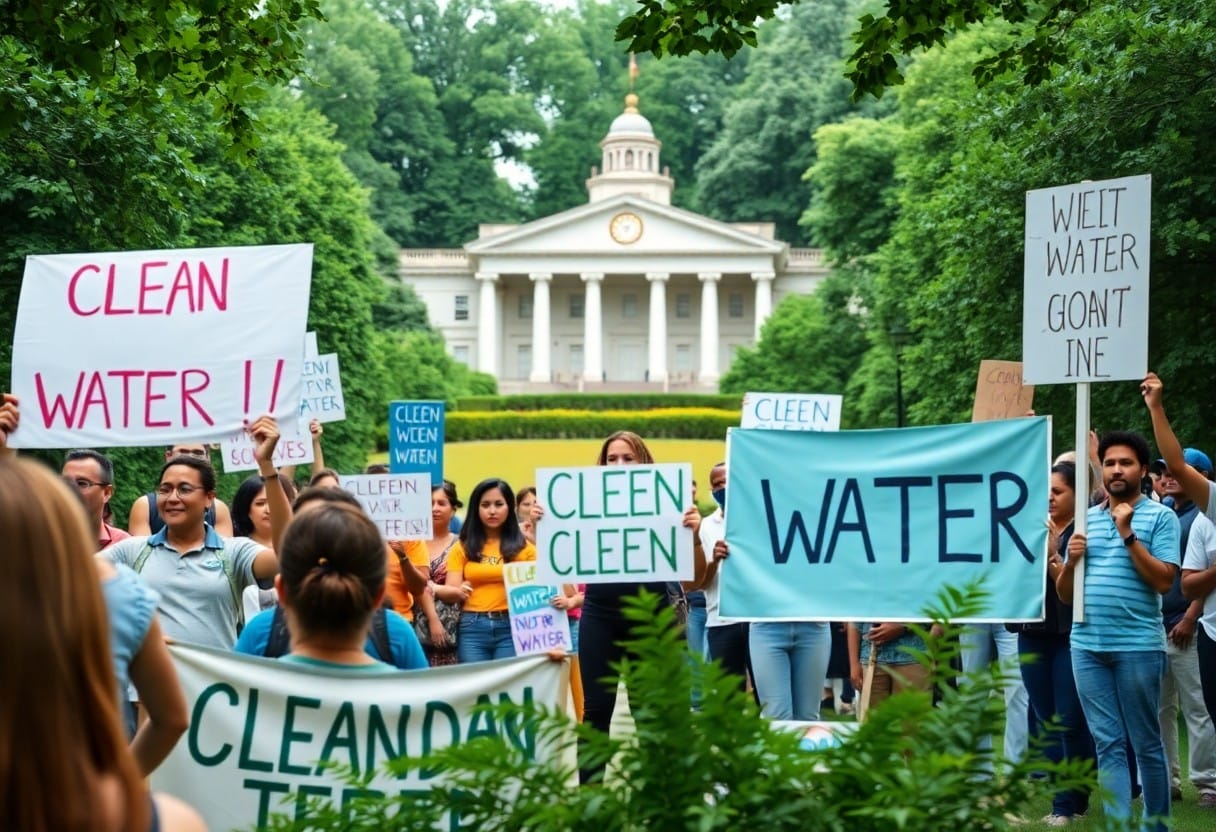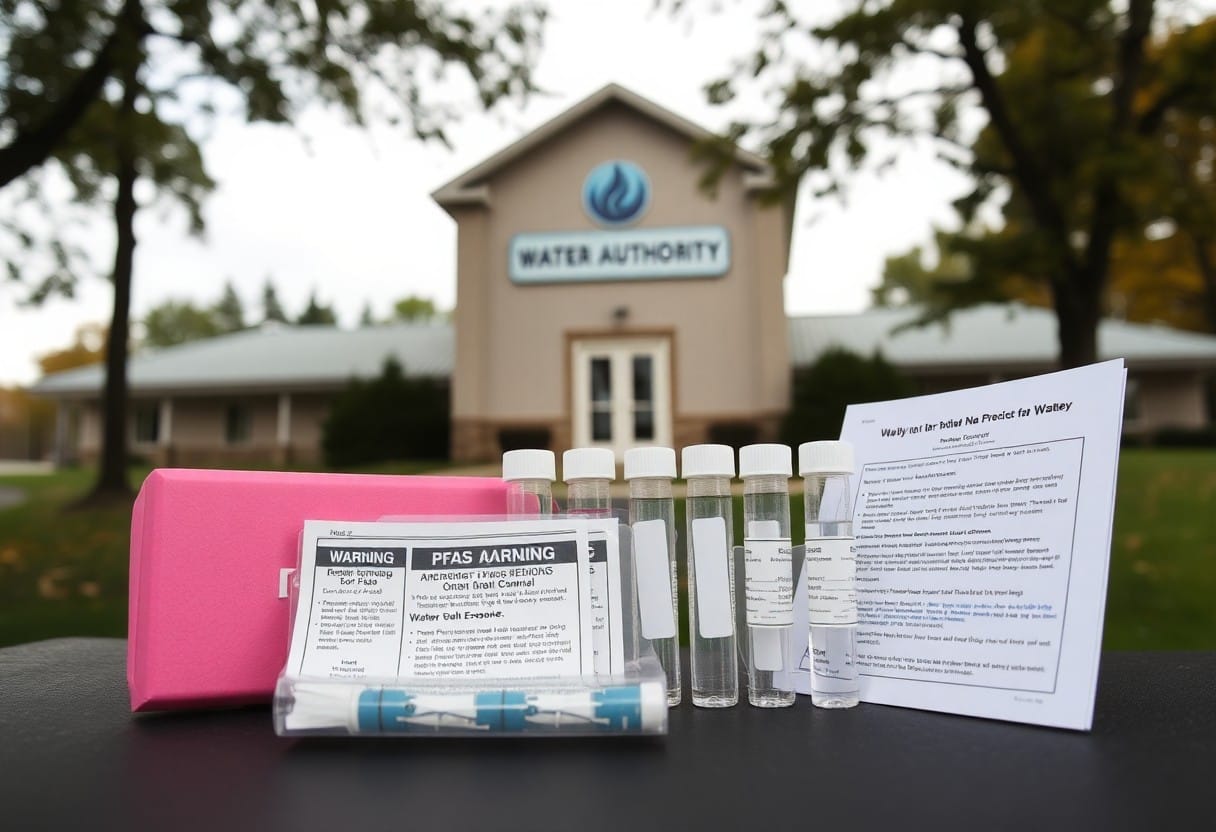Over the past few years, concerns have intensified regarding the environmental impact of Chemours’ pollution in Fayetteville. As a resident, you have the right to protect your community and advocate for healthier living conditions. This blog post provides you with actionable steps you can take to engage with local authorities, gather vital information, and raise awareness about the dangers of toxic emissions. Together, your collective voice can foster meaningful change to mitigate the risks associated with this pollution.
Understanding Chemours’ Pollution
Before you can take effective action, it’s imperative to understand the nature and extent of the pollution stemming from Chemours. Located on the banks of the Cape Fear River, the Chemours facility has been linked to multiple sources of contamination, primarily through the release of per- and polyfluoroalkyl substances (PFAS), commonly known as “forever chemicals.” These substances have been found not only in river water but also in the soil surrounding the plant and even in your drinking water. The persistent nature of PFAS means they do not break down easily in the environment, raising significant concerns about long-term exposure and bioaccumulation in local ecosystems.
Overview of Contamination Sources
Chemours’ operations have historically involved the use of various hazardous chemicals, leading to various contamination sources. Lead discharges into the Cape Fear River, air emissions, and potential leaks from the facility contribute to our water quality issues. If you live nearby or rely on groundwater, you’re at risk for exposure due to the compounds that seep into your local environment, affecting both wildlife and humans. Understanding these sources of pollution is the first step to advocating for cleaner practices and safer regulations.
Health Risks Associated with Pollution
To protect your health, it is imperative to be aware of the potential risks associated with exposure to Chemours’ pollution. Studies have shown that PFAS can lead to adverse health effects, including increased cholesterol levels, liver damage, immune system dysfunction, and even certain types of cancer. These substances are particularly concerning because they can accumulate in the body over time, exacerbating health problems for individuals exposed to them on a regular basis.
For instance, children and pregnant women are at a higher risk of the negative effects associated with PFAS exposure, including developmental issues and reproductive harm. By understanding these health risks, you can be more informed in your discussions with local authorities and engage in advocacy efforts aimed at reducing exposure levels and holding Chemours accountable for their pollution, ultimately seeking both justice and a healthier community for you and your family.
Community Awareness and Engagement
One of the most effective ways for you to combat Chemours’ pollution is through community awareness and engagement. By fostering an informed community, you can amplify your voice and push for the needed changes in your environment. Many local activists are already mobilizing efforts to raise awareness, as highlighted in the report It’s terrible: Fight for clean water in Cumberland County …. Joining these initiatives can lead to a more united front against pollution and its effects on health and the environment.
Organizing Local Events
Before plunging into action, consider organizing local events that focus on educating your community about the effects of pollution from Chemours. This can include clean-up days, informational workshops, or community forums where residents can share their experiences and concerns. Such gatherings not only foster a sense of community but also empower neighbors to take collective action. Opportunities for collaboration with local environmental organizations can greatly enhance these efforts, bringing in expert speakers and resources to help address the challenges you face.
Educating Residents on Pollution Impact
Among the most important steps you can take is educating yourself and your neighbors about the impact of pollution on health and the environment. Many residents may not fully understand the serious implications of water contamination or air quality issues related to Chemours. By sharing information through pamphlets, social media campaigns, or community newsletters, you can ensure that your community is well-informed and prepared to advocate for their rights. Understanding the dangers associated with the pollution will motivate individuals to participate in action and engage with local leaders to demand better protections.
Events dedicated to educating residents can feature local health experts, environmentalists, and educators who can provide valuable insights into the specific risks posed by chemical exposure. These sessions can be eye-opening; you might discover that contaminated water sources can lead to serious health issues, including developmental effects, cancer, and reproductive problems. By connecting these dots, you empower your community to push for regulatory changes and hold offenders accountable. Your engagement can make a significant difference in transforming community awareness into lasting change.
Advocacy and Legal Actions
Assuming you are concerned about the impact of Chemours’ pollution on your community, engaging in advocacy and potential legal actions can empower you and your neighbors to drive change. One effective way to inform yourself and others is by reviewing materials regarding the environmental challenges posed by C3 Dimer Acid and PFAS. Understanding these pollutants’ effects on health and the environment can provide the foundation for your advocacy efforts, ensuring that you are armed with the knowledge needed to effectively engage decision-makers and protect your community.
Forming Community Coalitions
Behind every successful advocacy movement is a coalition of motivated individuals who share a common goal. By forming community coalitions, you can amplify your voice and pooling resources to tackle the pollution issue collectively. Building networks with fellow residents, environmental groups, and local organizations can create a stronger platform to demand accountability from Chemours. Furthermore, these coalitions can facilitate educational events, workshops, and discussions which can help galvanize support and deepen the community’s understanding of the issues at hand.
Engaging with Local Officials
Between your grassroots efforts, it is important to establish a line of communication with local officials who can influence policy decisions. Engaging with town council members, state representatives, and environmental agencies allows you to share your concerns and advocate for stricter regulations on Chemours. By presenting compelling evidence about the environmental and health impacts of the pollution, you increase the likelihood that your officials will take your concerns seriously. Consider requesting public meetings, writing letters, or even setting up appointments to discuss the urgent need for action.
Community involvement in local governance is not only empowering but also effective. By attending town hall meetings, you can provide personal testimonies about how Chemours’ pollution has affected you and your family. It is vital to be vocal and present facts about the detrimental effects to add weight to your claims. Utilizing data and studies related to PFAS exposure reinforces your position, which may prompt your officials to prioritize this issue. Your collective effort can push local leaders to take a stand and advocate for better protections against the harmful impacts of Chemours’ operations.
Individual Actions
To take personal action against the pollution caused by Chemours, you can actively engage in efforts that support environmental health in Fayetteville. Start by educating yourself about the nature of pollutants released by Chemours and the potential impacts on your community and health. This awareness enables you to participate more effectively in local discussions, meetings, and advocacy efforts. Connecting with local environmental groups and forums can amplify your voice and lead to collective action as you collaborate with fellow residents to advocate for stricter regulations and monitoring of pollution levels.
Reporting Pollutants
Across Fayetteville, it is necessary for residents like you to report any sightings or suspicion of pollution. Keeping a vigilant eye on any unusual discharges or odors in your environment helps create a comprehensive picture of the pollution issues facing your community. You can document the occurrence with notes, photographs, or videos and share this information with local environmental authorities or citizen science groups. By being proactive, you not only contribute to the overall monitoring efforts but also hold polluters accountable for their actions.
Reducing Personal Exposure
Behind every action you take to minimize your exposure to toxins, there’s a significant impact on your health and the environment. Simple measures such as using air filters in your home, ensuring that your water supply is tested and filtered if necessary, and choosing pesticide-free products can markedly reduce your exposure to harmful substances. Engaging in community clean-up initiatives also serves to lessen pollution in local habitats, promoting a healthier ecology for everyone. You can also share these strategies with your friends, encouraging them to adopt similar practices, amplifying the positive effects across your community.
Considering the systemic nature of pollution, taking steps to minimize your personal exposure is vital for your well-being. Frequent hand washing, using glass or stainless-steel containers, and incorporating indoor plants that filter air toxins into your home are effective measures to create a cleaner living environment. Staying informed and involved not only protects you but reinforces a culture of awareness and resilience among fellow Fayetteville residents. Together, these individual efforts culminate in significant change towards a healthier community.

Sustainable Practices
Keep in mind that adopting sustainable practices can significantly reduce the impact of pollution from Chemours. You can start by engaging in local environmental initiatives that focus on improving your community’s ecological footprint. By participating in clean-up campaigns, tree-planting events, or local advocacy groups, you not only contribute to a healthier environment but also strengthen the community’s commitment to sustainability. These efforts can lead to a collective voice that presses for stricter regulations on polluters and encourages the protection of natural resources.
Promoting Local Environmental Initiatives
Sustainable practices involve more than just individual efforts; they require a united community front. You can promote local environmental initiatives by spreading awareness about issues related to pollution and advocating for actions that lead to a healthier ecosystem. Collaborate with local organizations to present educational workshops that focus on sustainable living, helping your neighbors understand the ways in which they can contribute to reducing pollution and preserving the local habitat.
Supporting Clean Energy Solutions
For you, supporting clean energy solutions is a vital way to mitigate the harmful effects of pollution while embracing a sustainable future. Transitioning to renewable energy sources, such as solar or wind power, can effectively reduce your carbon footprint and combat the adverse environmental impact of fossil fuels. Look into energy-efficient options for your home and consider supporting local initiatives that promote renewable energy projects. By doing so, you contribute to a greener future not just for Fayetteville but for the planet as a whole.
But you can take further steps by participating in programs that actively endorse clean energy investments. Consider advocating for policies that prioritize and incentivize the installation of renewable energy systems in your community. Your involvement in pushing for these transitions can lead to a significant reduction in reliance on polluting energy sources, which ultimately benefits your health and the environment. Engaging in community dialogues about clean energy and encouraging local businesses to adopt eco-friendly practices can create a ripple effect that transforms collective energy consumption patterns.
Resources for Residents
Not all resources are easily accessible, but effective avenues are available for Fayetteville residents concerned about Chemours’ pollution. Engaging with local environmental groups and utilizing reference materials can empower you in taking collective action and understanding the situation better. By utilizing the right resources, you can effectively amplify your voice and impact regarding this pressing issue.
Contact Information for Environmental Groups
Contact local environmental organizations such as the North Carolina Sierra Club or the Waterkeeper Alliance, which are dedicated to addressing pollution issues in the region. These organizations often hold meetings, provide updates, and organize events where you can learn about the challenges related to Chemours’ activities. Reaching out to them can connect you with advocates who are on the front lines of the fight against pollution.
Reference Materials and Guides
Contact your local library or online platforms for reference materials that detail the impact of chemical pollutants on health and the environment. Various guides are available that explain your rights as a resident and how to report pollution incidents. These documents can be important tools in educating yourself and others in your community about how to address environmental issues effectively.
A thorough review of reference materials can provide you with the knowledge necessary to understand the complexities of pollution and your rights. You can find comprehensive guides that detail the local laws regarding emissions, health advisories related to chemical exposure, and effective community organizing techniques. Familiarizing yourself with these resources will empower you to advocate effectively against Chemours’ impact on your neighborhood.
Final Words
To wrap up, addressing the pollution caused by Chemours requires prompt action on your part as a resident of Fayetteville. You can start by educating yourself about the contaminants affecting your community and advocating for transparency from local officials and Chemours itself. Engage in public meetings, participate in community forums, and voice your concerns through social media platforms to amplify awareness about the issue. Collectively, your voices can urge policymakers to take the necessary steps to hold Chemours accountable and ensure the health and safety of your environment.
Additionally, consider connecting with local environmental groups focused on tackling pollution issues. By joining forces with like-minded individuals, you can develop strategies to monitor air and water quality, engage in cleanup efforts, and lobby for stricter regulations. Taking these immediate actions not only empowers you but also strengthens your community’s resilience against the adverse effects of pollution. Your involvement is imperative in fostering a cleaner, healthier Fayetteville for everyone.



